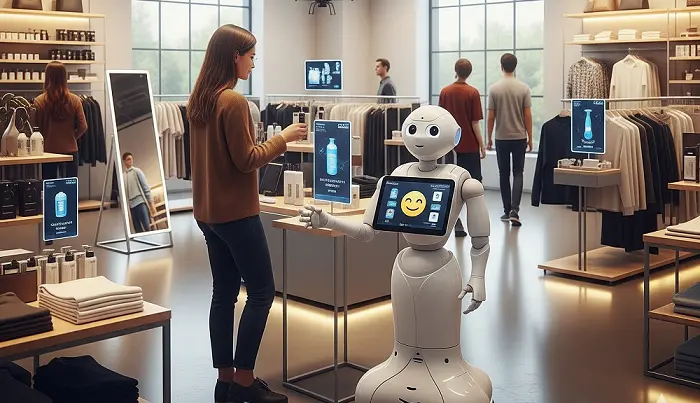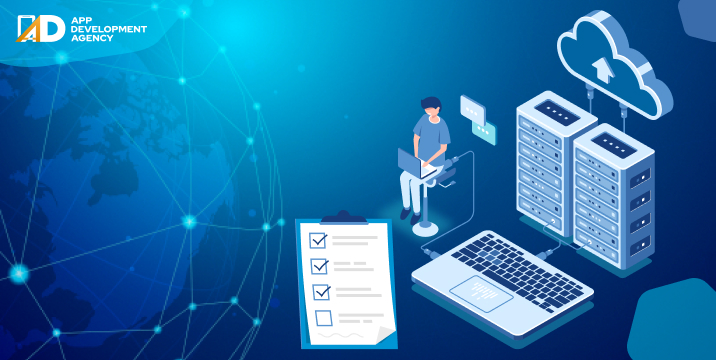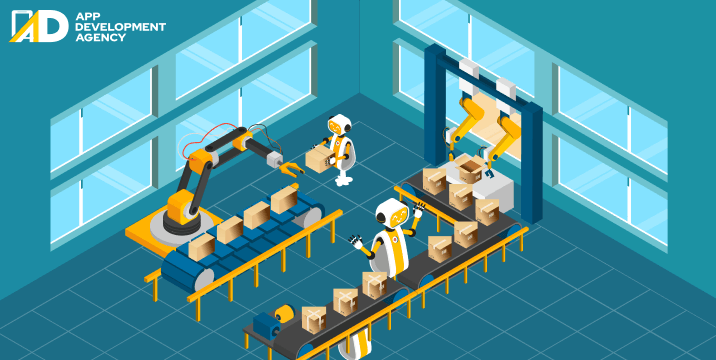I was so inclined to write a theory acknowledging the applications and benefits of AI, not just in retail but across various domains, but I know that is what we know, and what we are feeling day to day. AI can work tirelessly 24*7, without a pause, but humans need a break. And to make AI work, we need humans in the first place. AI can forecast, predict based on behaviour and pattern recognition, which can help in reducing cost, and improving outcomes. This practice can reduce overall cost, save time, detect frauds, and speed up operations.
In retail stores and shopping spaces, even in warehouses automated systems:
(1) Track how customers behave,
(2) Provide insights into – store layout, – product placement, and – customer preferences.
(3) Smart shelves with sensors scan the stock when it is low and remove the need for manual stocktaking.
(4) AI enables cashier-less stores, and reducing wait times.
(5) It analyzes large datasets to provide retailers with valuable insights into customer behavior, market trends, and operational performance.
Such insights enable retailers to make informed decisions about product development, marketing strategies, and store operations. Stores aren’t just places to buy things; they have become living, thinking ecosystems that respond to shoppers almost as naturally as a good salesperson would.
Walk into any flagship apparel stores in London and even before you touch a hanger, a smart screen would suggest a jacket in your size, in a style eerily close to one I’d bookmarked online weeks earlier. That wasn’t luck but AI that quietly connected dots between my (1) browsing history, (2) loyalty account, and (3) in-store inventory.
AI is now offering (1) customer experience, (2) inventory flow, (3) pricing, (4) security, every moving part is getting smarter. And for businesses working with AI Development companies, the transformation feels less like adopting a new tool and more like upgrading the entire nervous system of a store.
AI saves a lot of time, manpower, and makes the whole process cost – effective and worthwhile. An increasing number of Gen AI startups are emerging, moving towards software-as-a-service and application-focused models. Vertical – specific solutions, voice AI, Agentic AI are other areas in the spotlight.
Personalized shopping experiences tend to make customers spend more. Whether it’s a recommendation on an app or an in-store smart mirror showing a perfect accessory, AI nudges purchases without pushing.
Automating inventory checks, demand forecasts, and route planning trims down waste and logistics spend.
When shoppers feel understood — not stalked — they come back. AI-powered personalization builds that trust.
Data doesn’t get tired. AI keeps crunching sales patterns, competitor prices, and market signals to give managers insights they can actually act on.
Retailers who hesitate on AI will simply look slower compared to rivals using it to deliver smoother, faster, more personalised service.
When I worked with a mid-sized retailer in Bangalore, they partnered with an AI app development company to overhaul their outdated loyalty program. Within six months, their redemption rates doubled, and customer churn dropped by 14 percent. AI didn’t just analyse points — it learned buying rhythms and pushed the right offers at the right time.
You’ve already met it, even if you didn’t notice.
● Pushing the next pair of shoes via Netflix suggestions
● Prices adjust in real time based on demand, competition, and even weather.
● You can “wear” sunglasses or sneakers through your phone before buying.
● Upload a photo and find similar products instantly.
● Handle returns, track orders, or answer product questions at 2 a.m. without human staff on duty.
● Walmart’s shelf-scanning robots are a classic example. They roll through aisles, spotting empty spots or misplaced items. It’s mundane work for humans, but gold for consistency, and it keeps customers from seeing that dreaded “out of stock” tag.
AI is not just robotic but brings a clever, slightly insane human touch, covering the entire idea of being artificial. No more “too much of one thing, not enough of another.” AI predictions keep the balance right with (1) Automated scheduling, (2) invoice checks, and (3) customer queries, adjusting orders, promotions, and layouts without waiting for quarterly meetings.
A cosmetics retailer in Singapore once worked with a mobile app development agency to integrate AI into both its online store and physical shops. Within a year, they cut delivery delays by 40 percent and saw a 22 percent boost in repeat purchases due to the integration of Artificial Intelligence.
AI in retail is a mix of tools like ML, NLP, Computer Vision, Predictive Analysis, IoT integration, and Cloud computing. When an app development agency gets these layers working together, it stops feeling like “tech for tech’s sake” and starts feeling like a retail operation that just… works.
By 2030, AI in retail will likely feel as normal as barcode scanners. Not just “you bought this, so you might like that”, more like “you’re planning a vacation, here’s luggage, sunscreen, and a book you’d enjoy on the flight.” Cashier-less checkouts will expand beyond Amazon Go-style experiments. AI will help minimise waste through precise production and supply chain planning. Virtual showrooms where you can walk through a store with a VR headset. Ordering through smart speakers is becoming common. The AI Development companies leading retail projects now are already building modular systems so that retailers can scale from a chatbot today to a fully automated inventory network tomorrow.
Start with one pain point. Don’t try to automate everything overnight. If stockouts are hurting sales, begin with demand forecasting. If customer wait times are long, start with AI chatbots. Work with AI app development company partners who understand your market, not just the technology. And most importantly, measure every step. AI works best when you can feed it real results to learn from.
The retail industry in 2025 is moving too quickly for guesswork. AI doesn’t just keep pace; it sets the pace. From making shopping more human to making operations more efficient, the technology is both a shield against risk and a springboard for growth. Retailers who still see AI as “optional” will soon feel like those who refused to launch websites in the early 2000s. The tools are ready. The customers are ready. The only question is whether the business is ready.
It depends upon the scope of the project – the features and functions to be integrated. Estimating a figure would be difficult at this stage because it depends upon the technologies in demand, the skills of developers, the experience of the development team, the demographics and location from where they are working, in-house or outsourced.
If SaaS based tools are implemented, partnering with an experienced mobile app development agency could offer modular solutions.
It can be, if retailers follow proper encryption standards and comply with local data protection laws. Partnering with reputable app development agency teams is critical.
Inventory optimisation and personalised promotions usually deliver measurable results within months.
Not entirely. It will automate repetitive tasks, but human roles in customer engagement, brand storytelling, and strategy will remain essential.

I still remember standing in a crowded supermarket in 2015, staring blankly at three different brands of cereal, unsure which one was cheaper, healthier, or even remotely worth the price tag. Now my shopping app nudges me with suggestions based on my past choices, points out discounts I’d probably miss, and even reminds me that …
Continue reading “Benefits of Artificial intelligence in Retail”
Read More
We live in an era where your coffee machine can sync with your smartwatch, the air conditioner can sync with your smartphone, but your university portal still logs you out after three minutes of inactivity. Why is that? While the corporate world, healthcare, and even agriculture have embraced the cloud like it’s the second coming …
Continue reading “Cloud Computing in Education- Benefits, Challenges, and Implementation Process”
Read More
When was the last time you waited for a show to air at a fixed time on cable? I am not a regular movie watcher. Nor do I keep hold of the dates when a blockbuster is about to be released. I am not a die-hard fan of grabbing the coziest seat, buying a lounge …
Continue reading “Role of AI in OTT: Transforming the Future of Streaming Platforms”
Read More